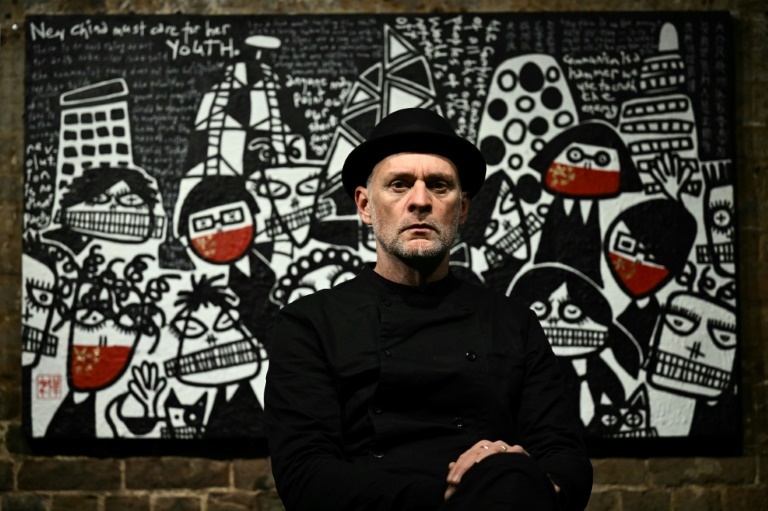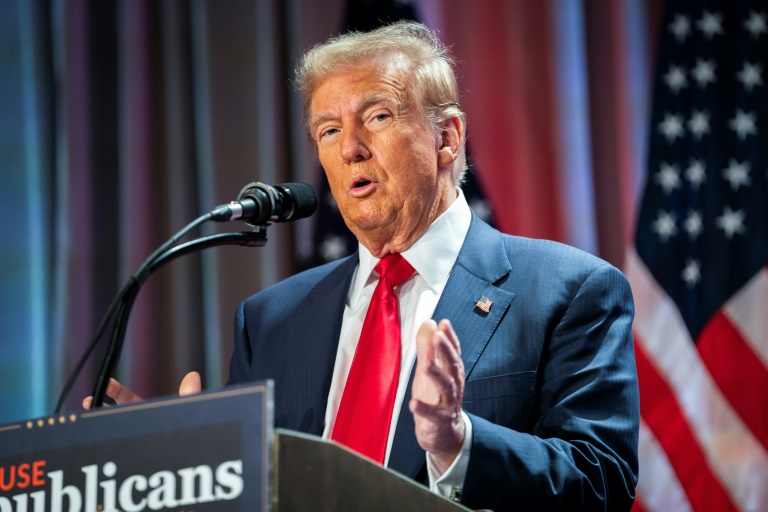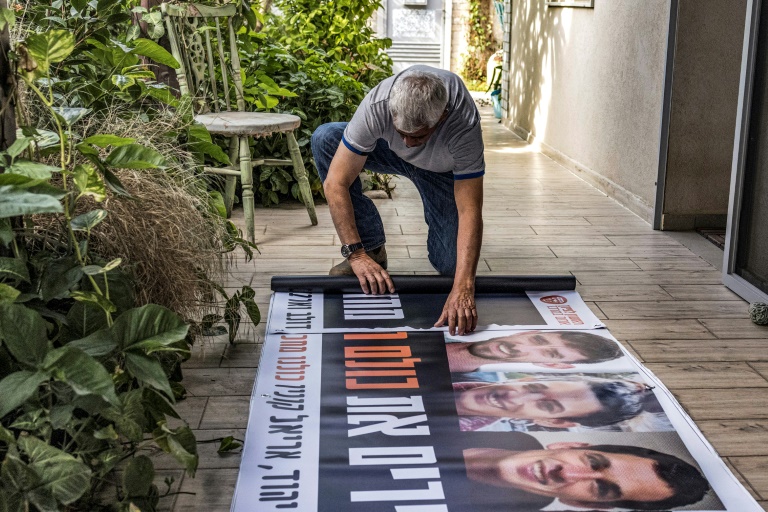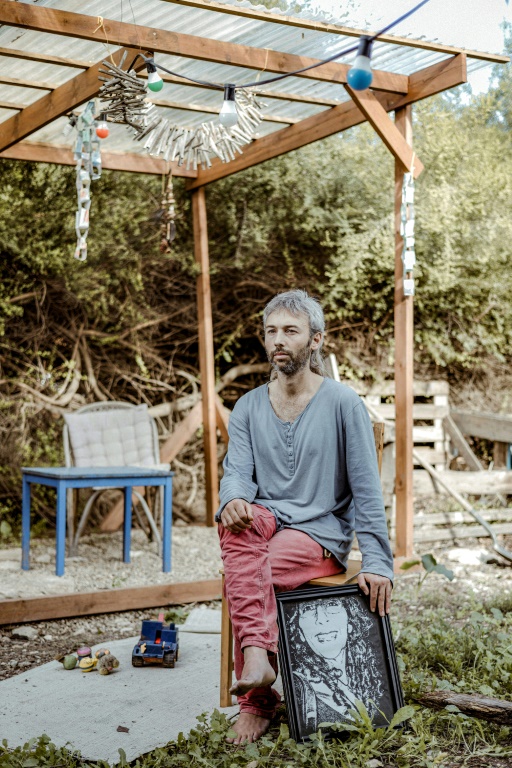For two decades, British artist Martin Lever took his inspiration from Asia and his adopted home of Hong Kong.
Lever, 54, who spent most of his life in Hong Kong before deciding to leave in 2022 in the wake of a sweeping national security law introduced by Beijing, specialised in landscapes, portraits and abstract works
But after years of non-political work, he says he has been compelled to try to “capture the situation in Hong Kong through my art”.
In an exhibition that his is aware risks him being banned from ever returning to the city he loves, he has used a playful pop art aesthetic to highlight what he says is the silencing of Hong Kong youth.
Taking inspiration from the late US graffiti artist Keith Haring, his collection shows figures with mouths zipped shut or covered with masks.
Key Hong Kong sights and locations are featured in the works “essentially to just symbolise that this law was starting to creep into every aspect of Hong Kong life in different ways”, he told AFP.
Following the introduction of the national security law in 2020, Lever has now swapped the buzz of Hong Kong for the calm of rural Yorkshire in northern England.
Semi-autonomous Hong Kong — which enjoys greater freedoms compared to mainland China — once had a vibrant civil society.
But the new law, designed to quell dissent in the financial hub, has had far-reaching consequences.
“I’ve never really lived through anything, from a historical perspective, of the enormity that was I was witnessing in Hong Kong — the sort of disintegration of the One Country Two Systems… and 50 years of autonomy,” he said.
Until now there has been nothing particularly political about his art.
But the artist, who previously worked in advertising, said that like many living in Hong Kong, he had become increasingly alarmed that the Chinese government appeared to have “a long list of people it doesn’t like, who’ve been critical”.
Three years after the law was enacted, activists say Hong Kong’s police have stepped up surveillance — pre-emptively discouraging rallies before applications are filed, paying home visits in the lead-up to days seen as politically sensitive and summoning organisers for warning chats.
Jimmy Lai, a 75-year-old British citizen and founder of the now-shuttered tabloid Apple Daily, has been behind bars since 2020 ahead of his trial for alleged “collusion with foreign forces”, which starts on Monday.
“It started one by one, going after various sectors of society — Jimmy Lai and the Apple Daily being one very prominent figure who’d been critical of China — and starting to ban certain books, slogans and songs,” Lever said.
“It was just very surreal and I think I found myself just becoming angrier and angrier at what I saw.”
He said he had been disturbed that young people were not being allowed the freedoms he had enjoyed.
“I grew up in Hong Kong where freedom of speech, freedom of thought, freedom of creativity was taken for granted.
“That afforded me many opportunities that I’m very thankful for. To see those same freedoms being slowly taken away from primarily young Hong Kongers… makes me very sad.”
After 44 years in Hong Kong, Lever and his family decided to leave Hong Kong in 2022 for a combination of reasons, including the political situation.
He said the problem with the national security law was that it was so ambiguous it led to self-censorship.
“People don’t know what is okay and what isn’t. So as creative person, you have to worry.”
Creating the collection had been “cathartic” after the decision to leave, he said, but that there was a danger now of being singled out by the Chinese authorities.
“It’s a risk I’m prepared to take because if I get banned from Hong Kong for doing some paintings, then it kind of underlines the whole reason for it,” he said
“I just feel in my heart it’s something I’d really need to do.”
Silent Protest at London’s Crypt Gallery runs until Sunday. Proceeds from any sales will be donated to Hong Kong Watch, a human rights charity based in the UK.
AFP







